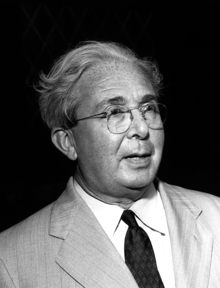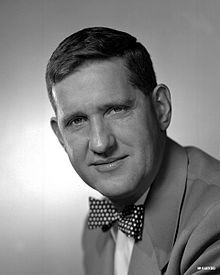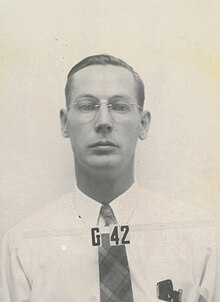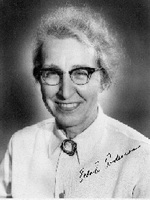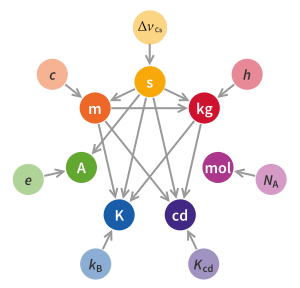Portal:Physics
The Physics Portal


Physics is the scientific study of matter, its fundamental constituents, its motion and behavior through space and time, and the related entities of energy and force. Physics is one of the most fundamental scientific disciplines. A scientist who specializes in the field of physics is called a physicist.
Physics is one of the oldest academic disciplines. Over much of the past two millennia, physics, chemistry, biology, and certain branches of mathematics were a part of natural philosophy, but during the Scientific Revolution in the 17th century, these natural sciences branched into separate research endeavors. Physics intersects with many interdisciplinary areas of research, such as biophysics and quantum chemistry, and the boundaries of physics are not rigidly defined. New ideas in physics often explain the fundamental mechanisms studied by other sciences and suggest new avenues of research in these and other academic disciplines such as mathematics and philosophy.
Advances in physics often enable new technologies. For example, advances in the understanding of electromagnetism, solid-state physics, and nuclear physics led directly to the development of technologies that have transformed modern society, such as television, computers, domestic appliances, and nuclear weapons; advances in thermodynamics led to the development of industrialization; and advances in mechanics inspired the development of calculus. (Full article...)
In algebraic geometry and theoretical physics, mirror symmetry is a relationship between geometric objects called Calabi–Yau manifolds. The term refers to a situation where two Calabi–Yau manifolds look very different geometrically but are nevertheless equivalent when employed as extra dimensions of string theory.
Early cases of mirror symmetry were discovered by physicists. Mathematicians became interested in this relationship around 1990 when Philip Candelas, Xenia de la Ossa, Paul Green, and Linda Parkes showed that it could be used as a tool in enumerative geometry, a branch of mathematics concerned with counting the number of solutions to geometric questions. Candelas and his collaborators showed that mirror symmetry could be used to count rational curves on a Calabi–Yau manifold, thus solving a longstanding problem. Although the original approach to mirror symmetry was based on physical ideas that were not understood in a mathematically precise way, some of its mathematical predictions have since been proven rigorously. (Full article...)
Did you know -
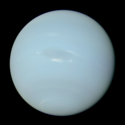
- ... that Aristotle's ideas of physics held that because an object could not move without an immediate source of energy, arrows created a vacuum behind them that pushed them through the air.
- ... that there are up to 6 candidates for the Theory of everything, minus String theory and Loop quantum gravity?
Selected image -
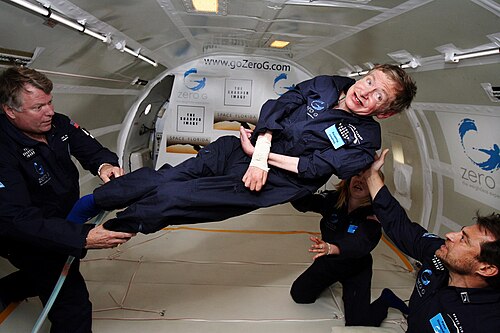
Related portals
January anniversaries
1 January
- 1894 - Satyendra Nath Bose's birthday.
- 1801 - Giuseppe Piazzi is the first to notice the dwarf planet Ceres. However, very soon astronomers lose sight of its orbital path. After some months, Giuseppe Piazzi finally calculates its correct position on December 31.
- 1985 - Ernie Wise, a comedian, places the first mobile phone call in the UK.
2 January
- 2 January 1822 - Rudolf Clausius was born.
8 January
- 8 January 1942 - Stephen Hawking was born, on the same day that Galileo Galilei died in 1642.
15 January
- 15 January 1908 - Edward Teller was born.
General images
Categories

Fundamentals: Concepts in physics | Constants | Physical quantities | Units of measure | Mass | Length | Time | Space | Energy | Matter | Force | Gravity | Electricity | Magnetism | Waves
Basic physics: Mechanics | Electromagnetism | Statistical mechanics | Thermodynamics | Quantum mechanics | Theory of relativity | Optics | Acoustics
Specific fields: Acoustics | Astrophysics | Atomic physics | Molecular physics | Optical physics | Computational physics | Condensed matter physics | Nuclear physics | Particle physics | Plasma physics
Tools: Detectors | Interferometry | Measurement | Radiometry | Spectroscopy | Transducers
Background: Physicists | History of physics | Philosophy of physics | Physics education | Physics journals | Physics organizations
Other: Physics in fiction | Physics lists | Physics software | Physics stubs
Physics topics
Classical physics traditionally includes the fields of mechanics, optics, electricity, magnetism, acoustics and thermodynamics. The term Modern physics is normally used for fields which rely heavily on quantum theory, including quantum mechanics, atomic physics, nuclear physics, particle physics and condensed matter physics. General and special relativity are usually considered to be part of modern physics as well.
More recognized content
Associated Wikimedia
The following Wikimedia Foundation sister projects provide more on this subject:
-
Commons
Free media repository -
Wikibooks
Free textbooks and manuals -
Wikidata
Free knowledge base -
Wikinews
Free-content news -
Wikiquote
Collection of quotations -
Wikisource
Free-content library -
Wikiversity
Free learning tools -
Wikivoyage
Free travel guide -
Wiktionary
Dictionary and thesaurus
Sources
Portals on Wikipedia

![Image 1 Szilard, c. 1960 Leo Szilard (/ˈsɪlɑːrd/; Hungarian: Szilárd Leó [ˈsilaːrd ˈlɛoː]; born Leó Spitz; February 11, 1898 – May 30, 1964) was a Hungarian-born physicist, biologist and inventor who made numerous important discoveries in nuclear physics and the biological sciences. He conceived the nuclear chain reaction in 1933, and patented the idea in 1936. In late 1939 he wrote the letter for Albert Einstein's signature that resulted in the Manhattan Project that built the atomic bomb, and then in 1944 wrote the Szilard petition asking President Truman to demonstrate the bomb without dropping it on civilians. According to György Marx, he was one of the Hungarian scientists known as The Martians. Szilard initially attended Palatine Joseph Technical University in Budapest, but his engineering studies were interrupted by service in the Austro-Hungarian Army during World War I. He left Hungary for Germany in 1919, enrolling at Technische Hochschule (Institute of Technology) in Berlin-Charlottenburg (now Technische Universität Berlin), but became bored with engineering and transferred to Friedrich Wilhelm University, where he studied physics. He wrote his doctoral thesis on Maxwell's demon, a long-standing puzzle in the philosophy of thermal and statistical physics. Szilard was the first scientist of note to recognize the connection between thermodynamics and information theory. (Full article...)](http://upload.wikimedia.org/wikipedia/en/d/d2/Blank.png)
